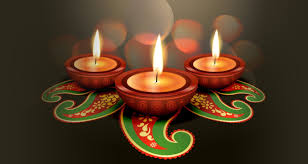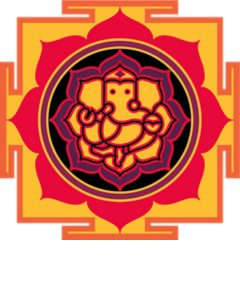
Diwali or Deepawali is a Hindu festival with a luminous recognition across the globe. This festival has a special mention in foreign countries for the way of celebration. It is one of the biggest festivals in India. Therefore, on this day the entire country is lights up millions of Diyas (earthen lamps).
The festival of Diwali is celebrated in the month of Kartika and it falls on the thirteenth fortnight on the Hindu calendar. However, according to the Gregorian calendar, the celebration falls in the month of October or November.
The celebration of Diwali is dedicated to the homecoming of Lord Ram after an exile of 14 months with his brother Laxman and wife, Goddess Sita. Also, the celebration includes lighting earthen lamp with Ghee, decorating homes with Rangoli & flowers and worshipping Lord Ram, Goddess Sita, Goddess Laxmi, and Lord Ganesha.
As a matter of fact, the festival is held on the darkest night of the month and people light up lamps to illuminate the light of the moon to welcome Lord Ram and Goddess Sita. Thus, people believe removing darkness by lighting Diyas all around. Also. Diwali is the festival of eliminating evil vibes by worshipping God. It is the festival that enlightens people.
Diwali Meaning
Diwali is the festival of Lights and its celebration takes place to commemorate the triumph of Lord Ram over the demon king Ravana and coming back home.
The name Deepawali comes from the language Sanskrit and it means “row of lights”. On the evening of Deepawali, people light up dozens of Diyas, candles, flowers, and colors. It lightens the homes, temples, and streets on a dark night.
In major portions of India, Diwali is a five-day festival among which third is considered the most important because it is the day people celebrate Deepawali by worshipping Gods.
Significance of Diwali
Diwali brings the joy of other festivals as well. Celebration of Dhanteras, Deepdan, Govardhan Puja, and Bhai Dooj enters the air with preparations of Deepawali. It is a five-day-long festivity falling all together to spread joy.
Diwali holds a huge religious, cultural, traditional, social, and economic importance. This festival amalgamates people together despite their differences. Also, the celebration of Diwali brings feelings above religion and region differences and discriminations. On this day, faith in righteousness and goodness adjoin people. In India, people from all the sections celebrate Diwali in their own way. This festival has many names similar to Diwali.
C has a significant relation with nature as well. From the day of Diwali, the environment is set free of the distorting insects. Folktales mentions, with the light of Diya insects, travel to the end and their destiny.
Diwali Celebration Story
As per the Hindu Mythology, Diwali is alluding to asDeepapratipadutsava. The tales state, in the seventh century for the commemoration of the marriage of Lord Vishnu and Goddess Laxmi newly married couples receive lamps as a gift.
It refers to Dipamalika in the ninth century work of the poet Rajashekhar. This tale mentions traditions of cleaning homes and decorating with lamps. It also tells about the Persian traveler Al- Biruni’s 11th-century chronicle on India.
On the very same day, people celebrate the homecoming of Lord Ram and Goddess Sita from an exile (Vanvasa) of 14 years. To celebrate the return of their beloved king Ram the public of Ayodhya lights the lamp in the city. To remember the day of Lord Ram’s return, people from all over the world celebrate the festival of Diwali.
Alongside this, the story of Yama and Nachiketa on Kartika Amavasya is also associated with the festival. This tale is a narration of true wealth and knowledge. The tale of Yama and Nachiketa set the example of righteousness. This tale makes Diwali festival of light, wisdom, and opulence.
Diwali Facts- Core Customs and Festivity
The festival of Diwali takes place for five days. On the third day, people celebrate Diwali with lighting lamps and decorating their homes with colorful flowers. This day includes worship of supreme deity Goddess Laxmi and Lord Ganesha.
There are a few specific connotations close to the celebration of Diwali in India which are as follows-
The First Day of Festivity-
This day has the denotation of worshipping to the Gods for wealth and prosperity. The first day of celebration is known as Dhanteras.
It is an amalgamation of two words “Dhan” meaning wealth and “Teras” meaning the thirteenth day of a lunar fortnight in accordance with the Hindu calendar. The celebration of this day is dedicated to the celebration of affluence. According to the Hindu mythological tales, on this day Goddess Laxmi comes out of the churns of the ocean. People welcome her in their lives by offering her Puja and offerings. Purchasing gold and ornaments is auspicious and important part of this festival.



